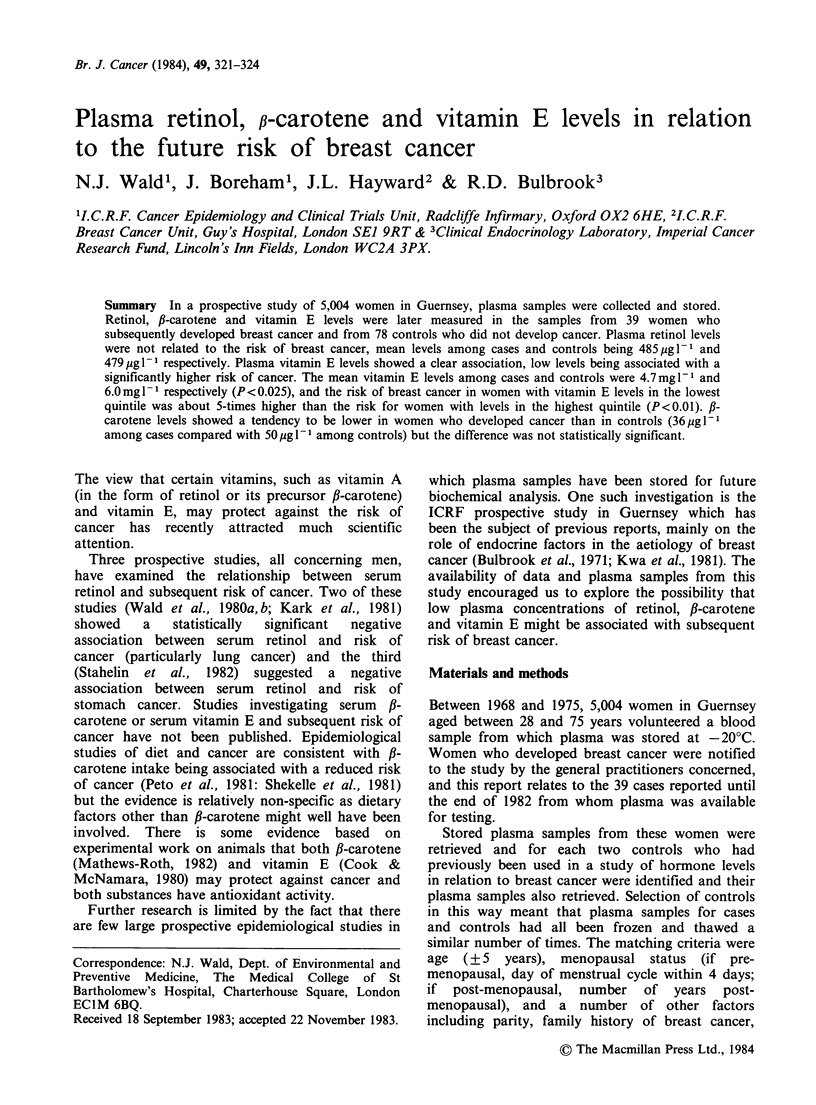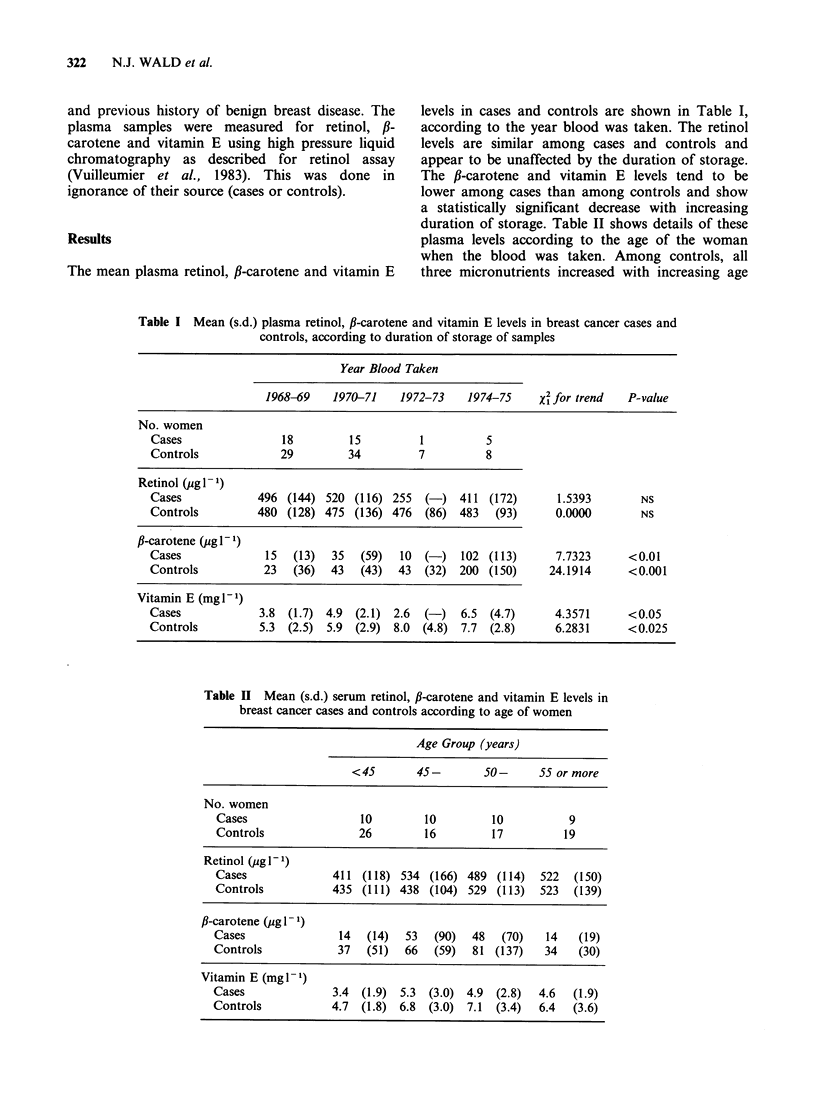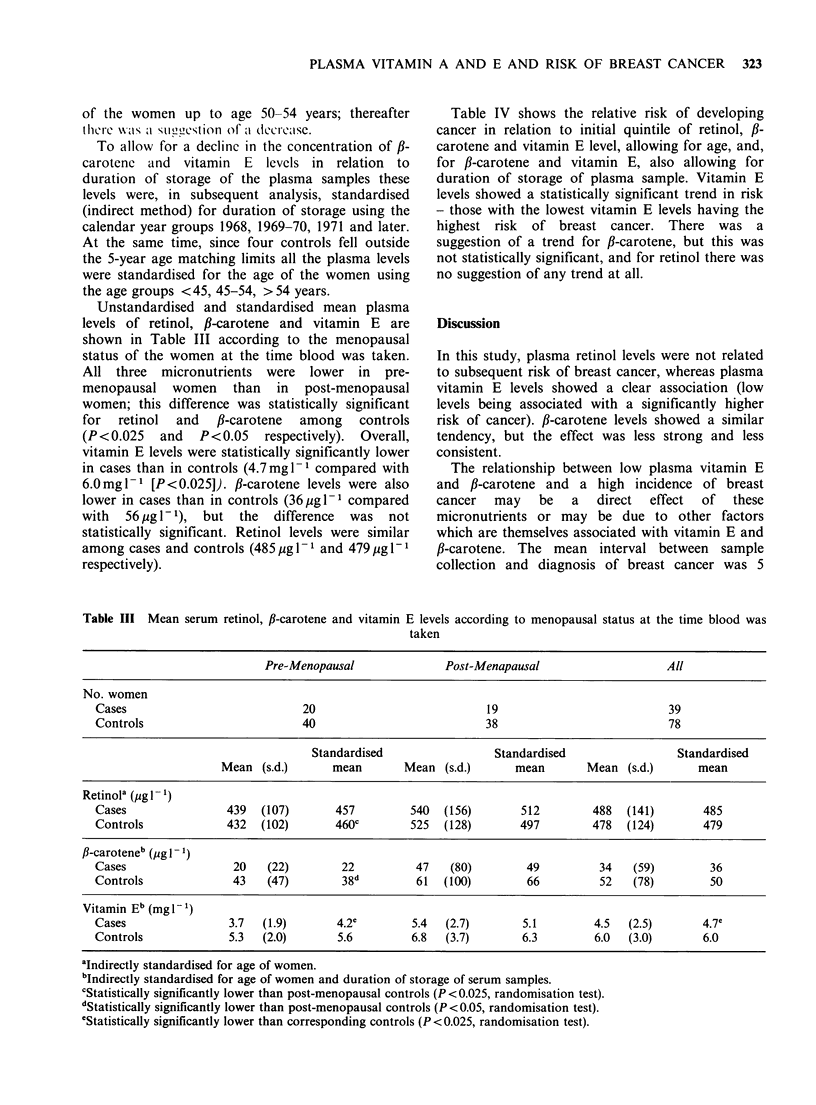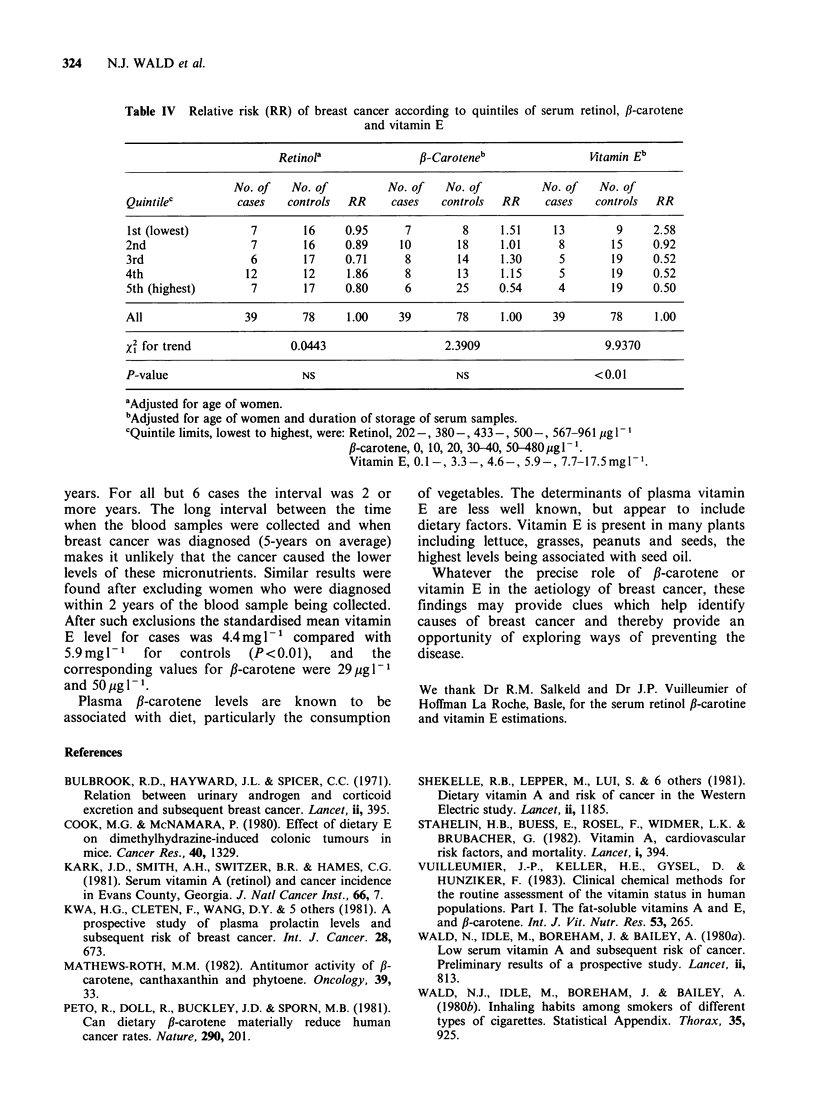Abstract
In a prospective study of 5,004 women in Guernsey, plasma samples were collected and stored. Retinol, beta-carotene and vitamin E levels were later measured in the samples from 39 women who subsequently developed breast cancer and from 78 controls who did not develop cancer. Plasma retinol levels were not related to the risk of breast cancer, mean levels among cases and controls being 485 micrograms l-1 and 479 micrograms l-1 respectively. Plasma vitamin E levels showed a clear association, low levels being associated with a significantly higher risk of cancer. The mean vitamin E levels among cases and controls were 4.7 mg l-1 and 6.0 mg l-1 respectively (P less than 0.025), and the risk of breast cancer in women with vitamin E levels in the lowest quintile was about 5-times higher than the risk for women with levels in the highest quintile (P less than 0.01). beta-carotene levels showed a tendency to be lower in women who developed cancer than in controls (36 micrograms l-1 among cases compared with 50 micrograms l-1 among controls) but the difference was not statistically significant.
Full text
PDF



Selected References
These references are in PubMed. This may not be the complete list of references from this article.
- Bulbrook R. D., Hayward J. L., Spicer C. C. Relation between urinary androgen and corticoid excretion and subsequent breast cancer. Lancet. 1971 Aug 21;2(7721):395–398. doi: 10.1016/s0140-6736(71)90113-9. [DOI] [PubMed] [Google Scholar]
- Cook M. G., McNamara P. Effect of dietary vitamin E on dimethylhydrazine-induced colonic tumors in mice. Cancer Res. 1980 Apr;40(4):1329–1331. [PubMed] [Google Scholar]
- Kark J. D., Smith A. H., Switzer B. R., Hames C. G. Serum vitamin A (retinol) and cancer incidence in Evans County, Georgia. J Natl Cancer Inst. 1981 Jan;66(1):7–16. [PubMed] [Google Scholar]
- Kwa H. G., Cleton F., Wang D. Y., Bulbrook R. D., Bulstrode J. C., Hayward J. L., Millis R. R., Cuzick J. A prospective study of plasma prolactin levels and subsequent risk of breast cancer. Int J Cancer. 1981 Dec;28(6):673–676. doi: 10.1002/ijc.2910280603. [DOI] [PubMed] [Google Scholar]
- Mathews-Roth M. M. Antitumor activity of beta-carotene, canthaxanthin and phytoene. Oncology. 1982;39(1):33–37. doi: 10.1159/000225601. [DOI] [PubMed] [Google Scholar]
- Peto R., Doll R., Buckley J. D., Sporn M. B. Can dietary beta-carotene materially reduce human cancer rates? Nature. 1981 Mar 19;290(5803):201–208. doi: 10.1038/290201a0. [DOI] [PubMed] [Google Scholar]
- Shekelle R. B., Lepper M., Liu S., Maliza C., Raynor W. J., Jr, Rossof A. H., Paul O., Shryock A. M., Stamler J. Dietary vitamin A and risk of cancer in the Western Electric study. Lancet. 1981 Nov 28;2(8257):1185–1190. doi: 10.1016/s0140-6736(81)91435-5. [DOI] [PubMed] [Google Scholar]
- Stähelin H. B., Buess E., Rösel F., Widmer L. K., Brubacher G. Vitamin A, cardiovascular risk factors, and mortality. Lancet. 1982 Feb 13;1(8268):394–395. doi: 10.1016/s0140-6736(82)91419-2. [DOI] [PubMed] [Google Scholar]
- Vuilleumier J. P., Keller H. E., Gysel D., Hunziker F. Clinical chemical methods for the routine assessment of the vitamin status in human populations. Part I: The fat-soluble vitamins A and E, and beta-carotene. Int J Vitam Nutr Res. 1983;53(3):265–272. [PubMed] [Google Scholar]
- Wald N. J., Idle M., Boreham J., Bailey A. Inhaling habits among smokers of different types of cigarette. Thorax. 1980 Dec;35(12):925–928. doi: 10.1136/thx.35.12.925. [DOI] [PMC free article] [PubMed] [Google Scholar]
- Wald N., Idle M., Boreham J., Bailey A. Low serum-vitamin-A and subsequent risk of cancer. Preliminary results of a prospective study. Lancet. 1980 Oct 18;2(8199):813–815. doi: 10.1016/s0140-6736(80)90169-5. [DOI] [PubMed] [Google Scholar]


